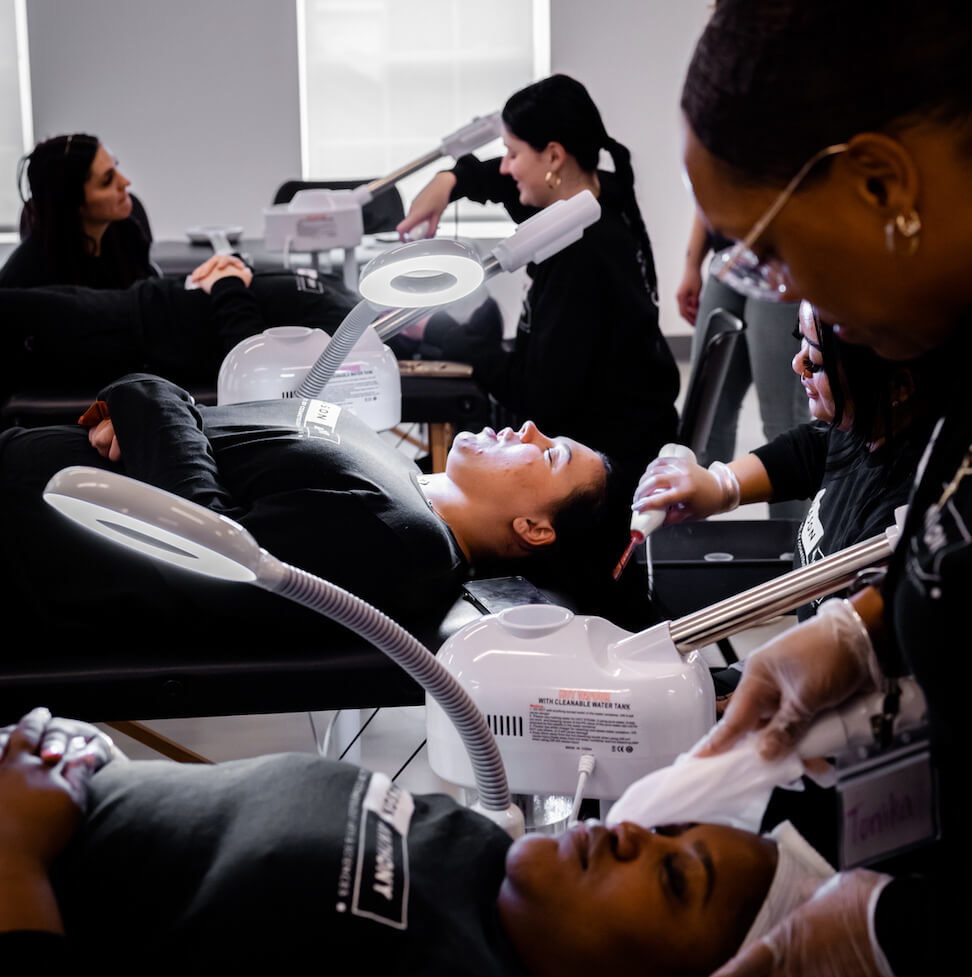
Exploring the Fundamentals of Skin Care
In our quest for radiant and healthy skin, we often encounter a multitude of products, routines, and advice. It’s easy to get overwhelmed by the sheer volume of information available. However, beneath the complexity lies a simple truth: great skin begins with the fundamentals of skin care. In this comprehensive guide, we’ll explore these fundamentals, helping you build a solid foundation for a skincare routine that suits your unique needs.
Understanding Your Skin
The first step in mastering the fundamentals of skin care is understanding your skin type. Skin can be broadly categorized into four types: normal, oily, dry, and combination. Knowing your skin type helps you choose the right products and treatments that cater to your specific needs.
1. Normal Skin: Balanced in oil production with minimal concerns. Lucky you! A consistent skincare routine is key to maintaining your skin’s natural health.
2. Oily Skin: Prone to excess sebum production, leading to a shiny complexion and potential acne. Focus on oil control and regular cleansing.
3. Dry Skin: Lacks moisture and often feels tight and flaky. Hydration and moisturization are your best friends.
4. Combination Skin: A blend of oily and dry areas, typically an oily T-zone (forehead, nose, and chin) and dryness elsewhere. Tailor your routine to address both concerns.
The Core Fundamentals
No matter your skin type, there are essential fundamentals of skin care that apply to everyone:
1. Cleansing: The cornerstone of any skincare routine, cleansing removes dirt, makeup, and impurities. Use a gentle cleanser suitable for your skin type, and don’t forget to cleanse twice daily. If you wear makeup then a double cleanse is highly recommended. The first cleanse is going to remove your makeup and the second cleanse is going to allow for the better removal of impurities.
2. Exfoliation: Exfoliating 1-3 times a week helps remove dead skin cells, revealing a brighter complexion. Be mindful not to over-exfoliate, as this can irritate your skin. It is best practice to add a mask or serum to your exfoliating day.
3. Moisturization: Proper hydration is vital for all skin types. Use a moisturizer that matches your skin’s needs to lock in moisture and maintain a healthy skin barrier.
4. Sun Protection: Sunscreen is non-negotiable. UV rays can cause premature aging and skin damage. Apply a broad-spectrum sunscreen with SPF 30 or higher every morning, even on cloudy days.
5. Healthy Lifestyle: What you put in your body matters just as much as what you apply to your skin. Stay hydrated, eat a balanced diet rich in antioxidants, and get adequate sleep.
Tailoring Your Routine
After establishing these core fundamentals of skin care, it’s time to customize your routine based on your skin type and concerns:
1. Serums: Serums are concentrated treatments that target specific concerns like wrinkles, dark spots, or hydration. Incorporate a serum that aligns with your skin goals.
2. Toning: A toner can help balance your skin’s pH and remove any remaining impurities. Look for alcohol-free options to avoid drying out your skin.
3. Masks: Weekly masks provide an extra boost of hydration, exfoliation, or nourishment. Choose masks that address your skin’s current needs.
4. Eye Cream: The skin around your eyes is delicate and prone to fine lines. An eye cream can help hydrate and reduce puffiness.
5. Spot Treatments: For acne or specific concerns, spot treatments with ingredients like salicylic acid or benzoyl peroxide can be effective.
Aging Gracefully
As we age, our skincare needs evolve. Incorporate these additional fundamentals to support healthy aging:
1. Antioxidants: Antioxidant-rich products protect your skin from free radical damage and help reduce the signs of aging.
2. Retinoids: These derivatives of vitamin A are known for their ability to minimize fine lines, wrinkles, and age spots. Start with lower concentrations and gradually increase.
3. Hydration: Aging skin often requires extra moisture. Opt for a richer moisturizer to combat dryness.
4. Collagen Boosters: Look for products containing peptides, hyaluronic acid, and collagen-boosting ingredients to improve skin elasticity.
5. Regular Check-Ins: Consult a dermatologist for regular skin assessments and to discuss potential treatments like chemical peels or laser therapies, or consult with your esthetician every 4-6 weeks.
Consistency Is Key
The most crucial fundamental of skin care is consistency. Building a routine and sticking to it is essential for seeing long-term results. It’s easy to get excited about new products or trends, but remember that slow and steady wins the race when it comes to skincare.
Mastering the fundamentals of skin care is the key to achieving and maintaining healthy, radiant skin. Whether you’re just starting your skincare journey or looking to refine your routine, understanding your skin type, embracing core principles, and customizing your regimen are the building blocks to success.
Ready to delve deeper into the fundamentals of skin care and turn your passion into a career? Explore our Esthetics Program at Mason Anthony, where you’ll receive expert guidance and hands-on training to become a skilled skincare professional. Your journey to transforming lives through beautiful skin starts here.
